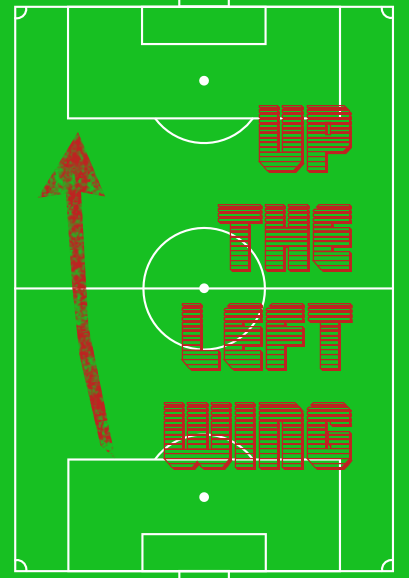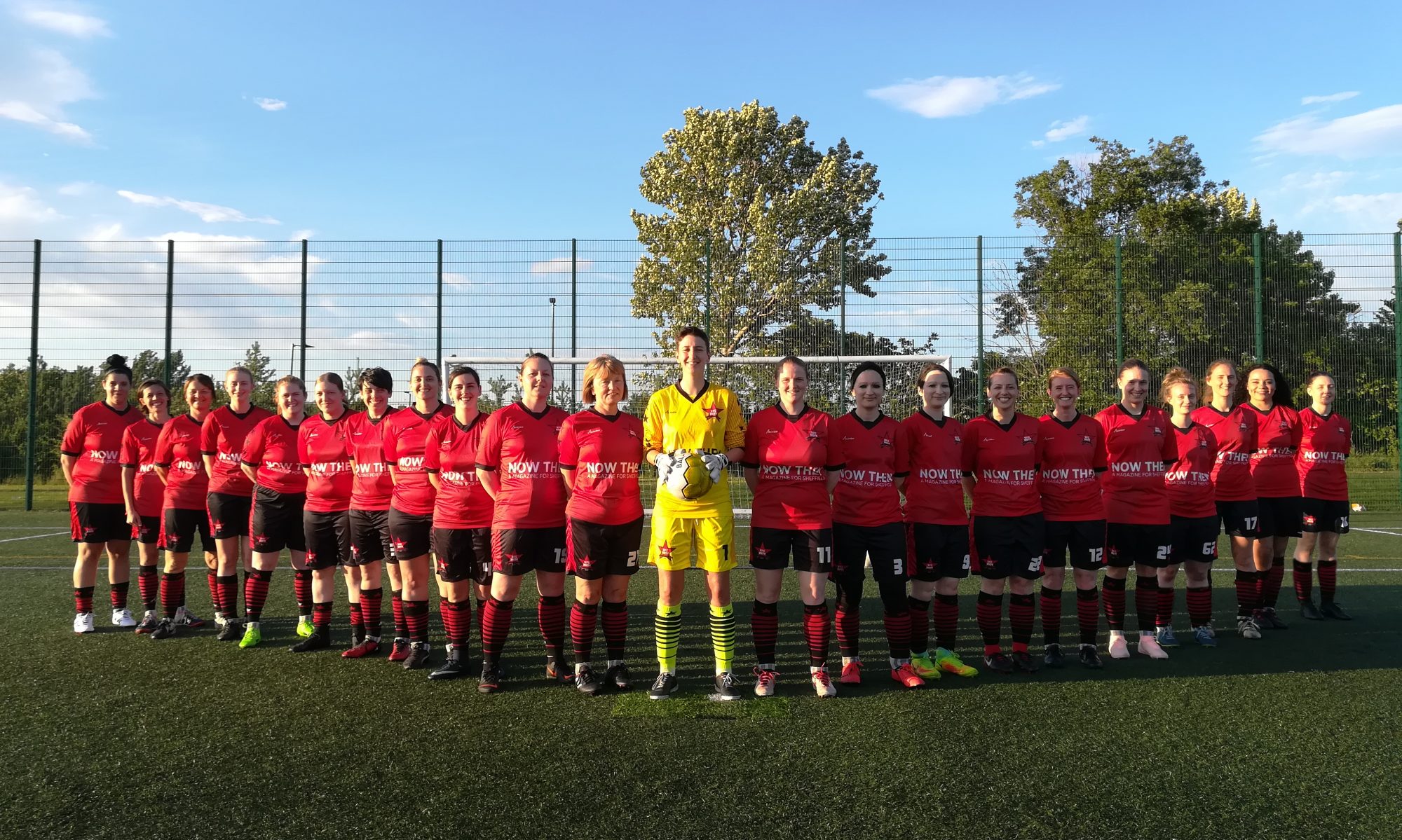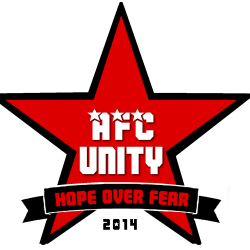
by Jay Baker
As mentioned here before, this season was about getting the right people involved as players – from the first team, the previous second team, from outside AFC Unity altogether, as well as from our innovative Solidarity Soccer initiative.
Judging from the results, you could be forgiven for assuming we don’t play well, but the opposite is more often our challenge: Our playing style and systems of play are designed to reflect our values, our ethos of collectivism, and that just so happened to mesh nicely with a lot of the football philosophies of the late great Johan Cruyff.
Cruyff is arguably the greatest football figure of all time, given not just his status as a player but also his coaching influence which largely transformed the way much of the game is played – to an extent where grassroots football, and particularly English football in general, is still catching up and switching on to this, causing many to scratch their heads at the way Cruyff’s protégé Pep Guardiola has come in and completely dominated men’s matches at the top of the sport. Yes, Pep has access to the best players in the world, which he admits he needs in order to play some of the best football in the world.
We have grassroots footballers who instead pay to play: some have been damaged from years of traditional footballing environments and poor coaching, others have been playing only a short amount of time, but all of them have to be willing to learn, and I’ve been lucky enough to have a squad that has at least given me a chance to coach them this season, by buying into what we’re trying to do as a football team.
So we have a mountain to climb in several ways: not just socially, having this mix of players fresh to this style of play; not just structurally, being run by women independent from any men’s club; and not just ethically, being committed to fair play, fair trade, and progressive ideals – but also in trying to play football in this way I’ve mentioned, with our own identity separate from the vast majority of other teams in our division who generally focus on outcomes instead of the process; results instead of the football itself.
Solidarity Soccer is designed to reduce the culture shock for incoming players with their sights set on playing 11-a-side football – playing, that is, for our badge in particular.
And there are, admittedly, some pretty wild concepts at AFC Unity for players used to 4-4-2, “man-to-man” marking, long ball territorial football, and an obsession with “winning the second ball.” We reject all of that, completely, right from the get-go.
All that matters in football is the ball – where it is and where it’s going, not the opposition. Obviously there are chases to win the ball first, there is using your physicality to an extent, and there are dangerous off-the-ball runs, and offside traps. But, overall, if your opponents were even magically invisible, it shouldn’t make that much difference to you as a player in terms of your focus on the ball location on the pitch, how you position yourself, and how you’re going to win it back as a unit. As Cruyff taught us, the ball is the most important thing: you have to have it in order to make sure only one team can score: yours.
So if your team has the ball, you have to keep it in your possession. If you lose it, you have to win it back as quickly as you can, with lots of pressure, before your opponents organise themselves through transition from defensive play to attacking play. Once your opposition has settled into attacking, you too must settle into a defensive organisation positionally.
We always say: if we have the ball, every single player on our team is part of the attack; if we don’t have the ball, every single player on our team is defending. It’s why terms like “attacker” and “defender” are falling out of fashion – every player has to be able to both defend and attack, including the goalkeeper. We play with “centre-backs,” “side-backs,” and “wing-backs,” but there’s really not much point in referring to these players as simply “defenders” when every player on the pitch will have to defend at some point. You call players higher up the field “forwards” – so if they’re forward, those opposite are “backs.” The terminology is evolving, and changing, and it makes more sense.
Again, this approach is all about unique individuality of players all working together for a collective good. Zonal marking is a part of this, where rather than following an individual opponent around like a lost puppy – being pulled way out of position – each player simply needs to patrol their patch based on their position, and seize the ball, making sure an opponent doesn’t have it. That is then a focus on individual responsibility for a collective good, rather than being obsessed with a single individual opponent as being more important.
This kind of collectivism in our football club is also reflected in the way we include so many players who were in the past told they were too small, too slow, too weak, or even too old.
First off, you can get injured at any age and have your playing days finished. That’s the sad reality on that one. And if you play football the right way – making the ball do the work – none of those other things should matter all that much. Cruyff was quite vocal about the absurdities of football pundits talking about how much a player ran, or how much stamina they had, because Cruyff’s idea was that you circulate the ball through quick, accurate passing. Then there’s less running to do. See how that works?

In addition, the idea that long balls have to be hoofed up in the air to the other end of the pitch to an individual star player is everything we oppose; that’s individualism, not collectivism. For us it’s about making sure the team passes the ball properly and works it up the pitch.
At AFC Unity, we’re not particularly keen on relying on headers, or that dreaded phrase of “winning the second ball.” Our focus is on the first ball: the accurate pass, not a hopeful, uncertain ball somewhere in the opponent’s half. Where’s the pride or unity in that? Players told me recently that our opponents in one game were shouting to each other to “gamble” by hoofing the ball long, and I found it the most bemusing thing I’d ever heard in football (though to my amazement, apparently this ugly, territorial game of chance is quite common – incredible!)
So the most important thing is passing. We do lots of it in training. And I mean lots of it. Again, we’ve spent this season starting over, with a great squad of players, who are all grasping these far-out football concepts and doing their best to execute them. But we’re getting there. My plan is to get some good results next season now our team has gelled fully, and then in a few years, this culture will be so engrained, we’ll go from strength to strength. We might be a similar team to the present, or be quite different. I’m very happy working harder to create and develop players from within, over bringing in top players later down the line when we’re doing well all of a sudden. I want players who buy into all this here and now, so we can start from the bottom and build up (and that includes starting from the bottom of the league too, if that has to be the case).
So passing will be a major theme of Solidarity Soccer because that’s how we play – that’s our foundation for our good quality football in the future. If you can’t stop a shot, or you can’t shoot, or you can’t even tackle, you know what? I can work with that, that’s just fine. But if you can’t pass the ball well, you can’t fit this style of play we have. Passing the ball well is the absolute most important thing. And hey, that’s not such a wild idea now, is it?
I’m very excited for the relaunch of Solidarity Soccer and for building on this foundation in the months and years to come!


